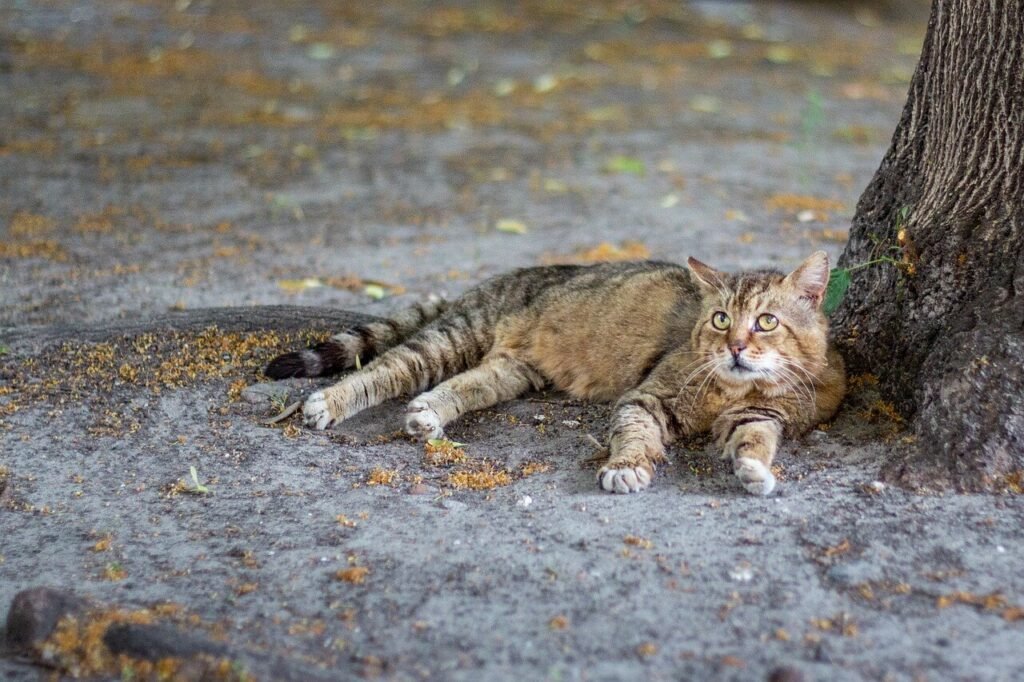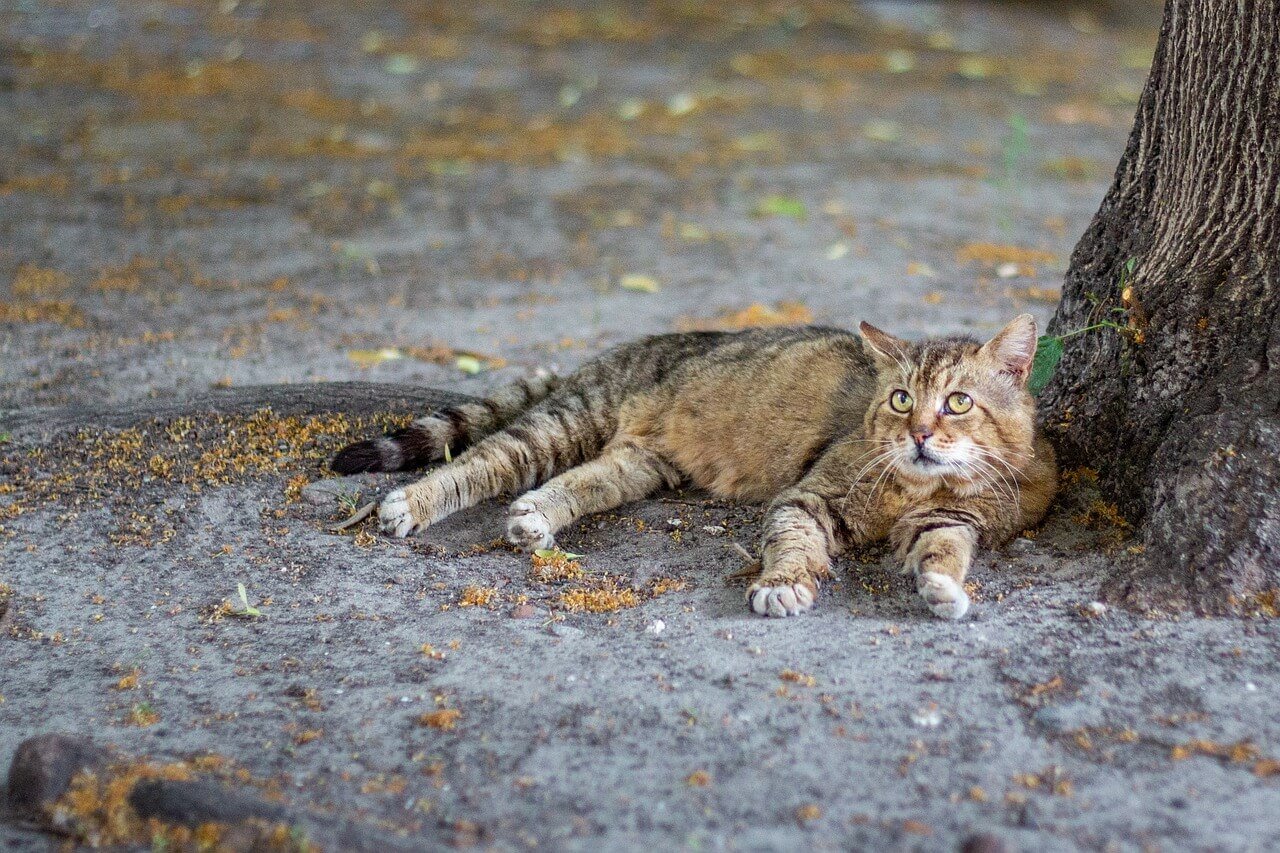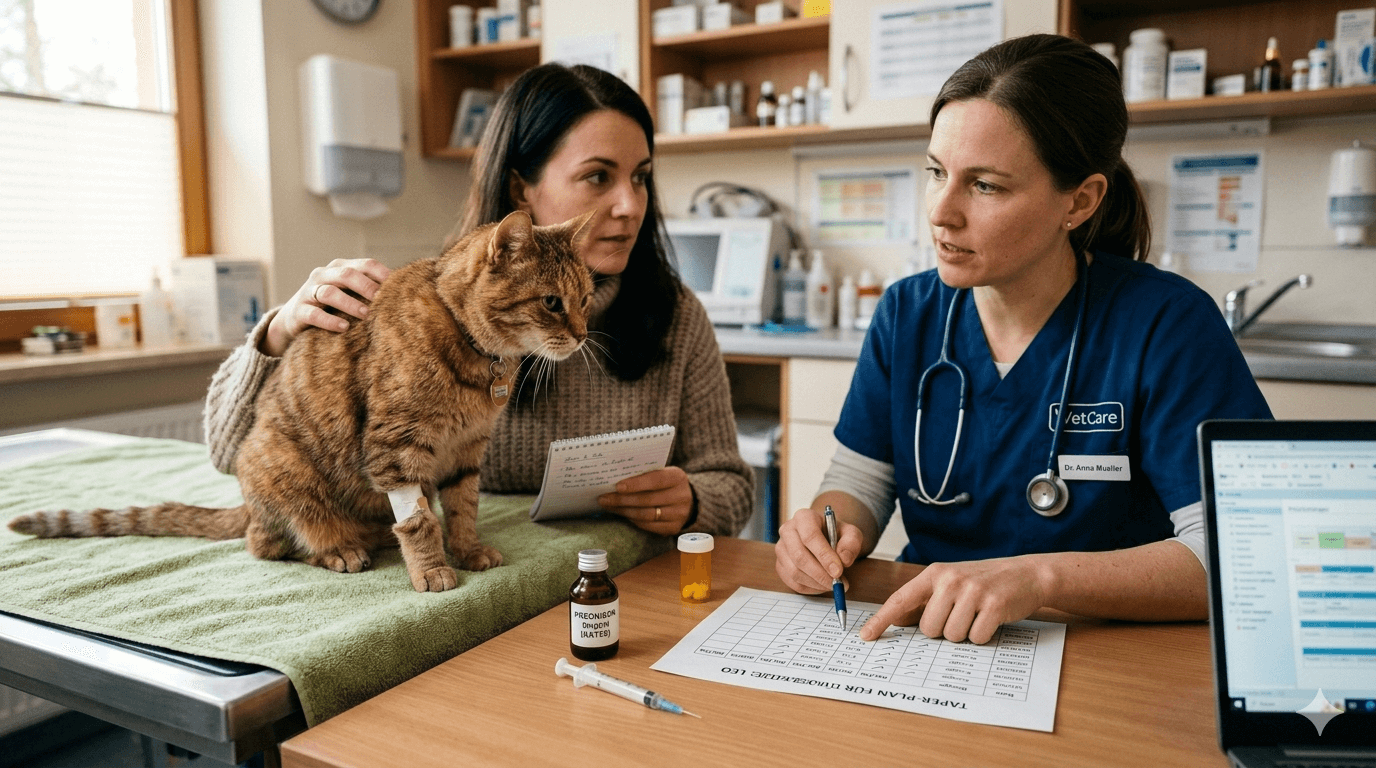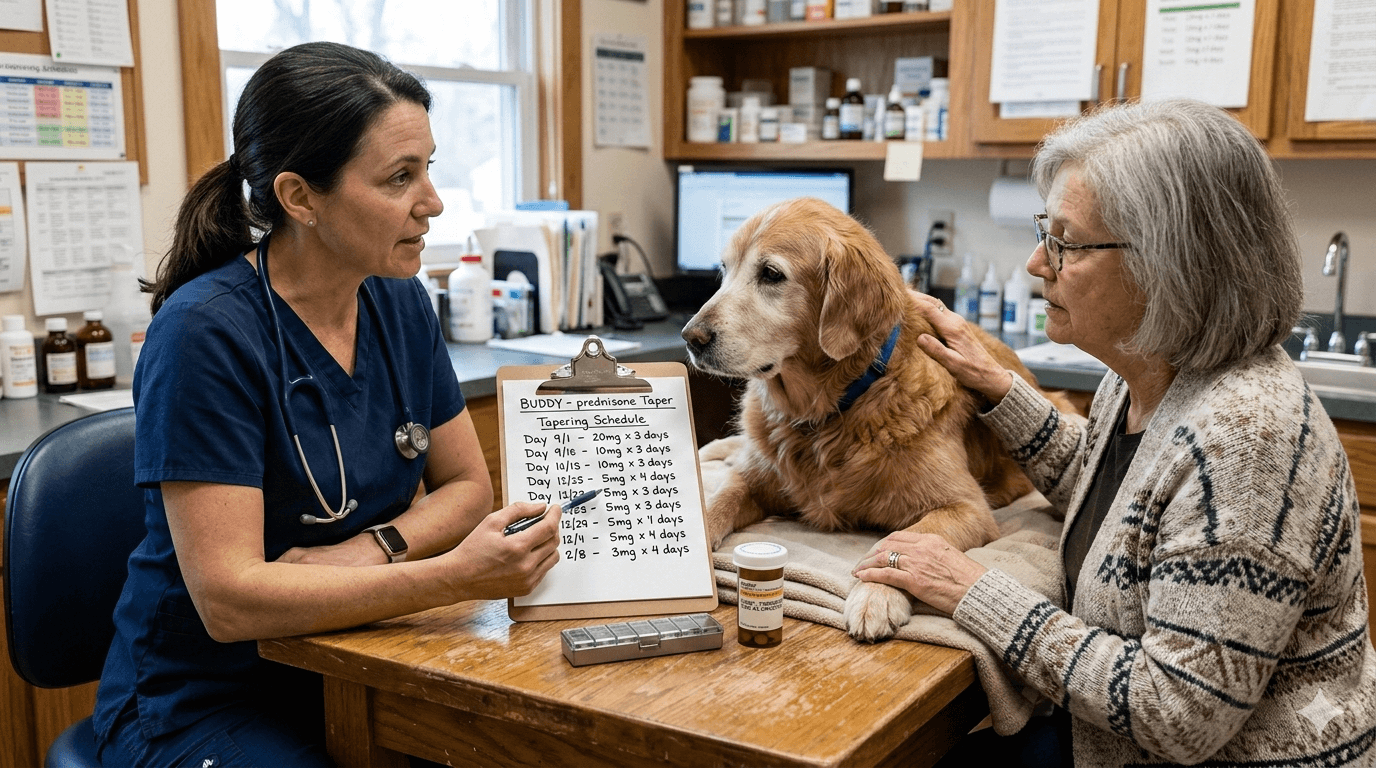Can Cats Get Pregnant While Nursing?
Caring for a nursing cat and her kittens is a rewarding experience, but it also raises important questions about their reproductive health. One common concern among cat owners is whether a nursing cat can become pregnant again while still caring for her current litter. The short answer is yes—cats can get pregnant while nursing—but the situation is more nuanced than it seems. Understanding the biological factors, risks, and implications of this possibility is crucial for responsible pet ownership. In this blog post, we’ll explore everything you need to know to ensure your cat’s well-being and prevent unintended pregnancies.
Biological Factors That Make Pregnancy Possible While Nursing
While nursing does have some impact on a cat’s reproductive cycle, it doesn’t completely prevent pregnancy. Here are the key biological factors that contribute to this possibility.
Return of Estrus (Heat Cycle):
A nursing cat may enter estrus as early as a few weeks after giving birth, depending on her hormonal balance and how frequently she nurses her kittens.Lactational Anestrus Isn’t Foolproof:
Lactational anestrus—a temporary pause in fertility due to nursing—is not guaranteed. If the kittens are older or nursing less frequently, fertility can return quickly.Hormonal Fluctuations:
Hormones like progesterone and estrogen fluctuate during nursing, which can sometimes trigger ovulation and make pregnancy possible.Kitten Weaning Patterns:
If kittens begin weaning earlier than expected, the mother’s body may interpret this as a signal to resume reproductive activity.Individual Variability:
Every cat is different, and some may regain fertility faster than others, even while still actively nursing.
These biological factors highlight why vigilance is essential when managing a nursing cat’s reproductive health.
Risks of Pregnancy During Nursing
Pregnancy while nursing poses significant risks to both the mother cat and her current litter. These challenges underscore the importance of preventing back-to-back pregnancies.
Nutritional Depletion:
A nursing cat requires extra nutrients to support her kittens. Adding another pregnancy can lead to severe malnutrition for both her and the kittens.Physical Strain:
Carrying another litter while nursing places immense physical stress on the mother’s body, potentially leading to exhaustion or illness.Reduced Milk Supply:
A new pregnancy can cause the mother’s milk production to decrease, leaving her current litter undernourished.Increased Risk of Miscarriage:
The hormonal changes associated with nursing and pregnancy simultaneously can increase the likelihood of miscarriage or complications.Behavioral Stress:
The demands of caring for two litters at once can overwhelm the mother, leading to anxiety or neglectful behavior toward her kittens.
Understanding these risks emphasizes the need for proactive measures to avoid unintended pregnancies during nursing.
Check this guide 👉Can Cats Sense Pregnancy? Best 7 Expert Tips!
Check this guide 👉Pregnant Cat Behavior: Best 7 Expert Tips!
Check this guide 👉Why Is My Pregnant Cat So Clingy? Best 7 Behavior Tips!

Preventing Pregnancy While Nursing | Signs Your Cat May Be Pregnant Again |
|---|---|
Keep the mother cat separated from males | Noticeable weight gain despite nursing |
Schedule spaying after kittens are weaned | Swollen or enlarged nipples |
Monitor her heat cycles closely | Increased appetite beyond normal nursing needs |
Provide toys or distractions to reduce stress | Behavioral changes, such as nesting behavior |
Consult your veterinarian regularly | Decreased interest in caring for current litter |
How to Prevent Pregnancy While Nursing
Preventing pregnancy during nursing requires careful planning and proactive measures. Here are some actionable steps to protect your cat’s health.
Separate the Mother from Male Cats:
Ensure the nursing cat has no access to intact male cats, as mating can occur even shortly after giving birth.Monitor Her Heat Cycles:
Watch for signs of estrus, such as increased vocalization or restlessness, and take steps to prevent mating during this time.Spay After Weaning:
Once the kittens are fully weaned, schedule spaying to permanently prevent future pregnancies.Provide Adequate Nutrition:
A well-nourished cat is less likely to experience hormonal imbalances that could lead to early fertility.Consult Your Veterinarian:
Regular check-ups can help identify any risks or concerns related to pregnancy during nursing.
Taking these precautions ensures your cat remains healthy and avoids the strain of back-to-back pregnancies.
What to Do If Your Nursing Cat Becomes Pregnant
If your nursing cat becomes pregnant, immediate action is necessary to safeguard her health and the well-being of her current litter.
Consult Your Veterinarian Immediately:
A vet can assess the situation and provide guidance on managing the pregnancy alongside nursing.Monitor Nutritional Intake:
Increase her calorie intake with high-quality food to meet the demands of both nursing and pregnancy.Supplement Milk Supply:
If her milk production decreases, consider supplementing with kitten formula to ensure her current litter stays nourished.Prepare for Early Weaning:
Gradually introduce solid food to the kittens to reduce the mother’s nursing burden as the new pregnancy progresses.Plan for Future Spaying:
Once both litters are independent, spay the mother to prevent future unintended pregnancies.
Acting promptly minimizes risks and ensures the best outcome for both the mother and her kittens.
Common Misconceptions About Cats and Pregnancy
There are several myths surrounding cats and pregnancy that can lead to misunderstandings. Here are some common misconceptions debunked.
Myth: Cats Can’t Get Pregnant While Still Nursing:
Fact: Cats can become pregnant during nursing, though the likelihood varies based on individual circumstances.Myth: Spaying Prevents All Reproductive Issues:
Fact: While spaying eliminates the risk of pregnancy, timing is critical to avoid disrupting nursing.Myth: Nursing Naturally Suppresses Fertility Completely:
Fact: Lactational anestrus isn’t foolproof, and fertility can return sooner than expected.Myth: Back-to-Back Pregnancies Are Safe for Cats:
Fact: Multiple pregnancies in quick succession can harm the mother’s health and reduce her lifespan.Myth: Male Cats Won’t Mate With Nursing Females:
Fact: Male cats will mate regardless of whether the female is nursing, making separation essential.
Clearing up these misconceptions helps cat owners make informed decisions about their pets’ care.
Tips for Managing a Large Litter While Preventing Pregnancy
Managing a large litter while avoiding pregnancy requires organization and foresight. Here are some tips to help you stay ahead.
Create Separate Spaces:
Designate specific areas for the mother and kittens to minimize stress and exposure to male cats.Use Distractions for Male Cats:
Provide toys, scratching posts, or outdoor time to keep male cats occupied and away from the nursing mother.Track Kitten Development:
Monitor the kittens’ growth to determine when they can transition to solid food, reducing the mother’s nursing responsibilities.Maintain a Routine:
Stick to a consistent feeding and care schedule to keep the mother healthy and focused on her current litter.Seek Professional Guidance:
Regular veterinary visits ensure the mother and kittens remain healthy and free from complications.
These strategies simplify the process of managing a large litter while preventing unintended pregnancies.
The Emotional Impact of Back-to-Back Pregnancies on Cats
Beyond physical risks, back-to-back pregnancies can take a toll on a cat’s emotional well-being. Here’s what to watch for and how to address it.
Increased Stress Levels:
Constantly caring for multiple litters can leave a cat feeling overwhelmed and anxious.Risk of Neglect:
Overwhelmed mothers may neglect their kittens, leading to developmental issues or poor bonding.Depression-Like Symptoms:
Some cats exhibit signs of depression, such as lethargy or loss of appetite, when overburdened by frequent pregnancies.Behavioral Changes:
Aggression or withdrawal may indicate that the cat is struggling emotionally due to the demands of nursing and pregnancy.Long-Term Effects on Bonding:
A stressed mother may struggle to form strong bonds with her kittens, impacting their social development.
Addressing these emotional challenges ensures a happier, healthier environment for both the mother and her kittens.
Frequently Asked Questions About Cats Getting Pregnant While Nursing
How soon can a cat get pregnant after giving birth?
A cat can enter estrus and become pregnant as early as a few weeks after giving birth.
Does nursing prevent pregnancy entirely?
No, nursing does not guarantee infertility. Fertility can return depending on various factors, including nursing frequency.
What happens if a cat gets pregnant while nursing?
Pregnancy during nursing can lead to nutritional depletion, reduced milk supply, and physical strain on the mother.
Should I spay my cat while she’s nursing?
It’s generally recommended to wait until the kittens are weaned before spaying to avoid disrupting milk production.
How can I tell if my nursing cat is pregnant again?
Signs include weight gain, swollen nipples, behavioral changes, and decreased interest in caring for her current litter.
Prioritizing Your Cat’s Health and Well-Being
While it’s biologically possible for a cat to get pregnant while nursing, doing so poses significant risks to her health and the well-being of her current litter. By understanding the factors that contribute to this possibility and taking proactive steps to prevent unintended pregnancies, you can ensure your cat remains healthy and happy. Responsible pet ownership involves staying informed, consulting professionals, and making decisions that prioritize your cat’s long-term welfare. Remember, spaying is one of the most effective ways to prevent future pregnancies and provide your feline friend with a safe, fulfilling life.
How to Taper Off Prednisone for Cats: Best 7 Expert Tips! – Safely reduce prednisone with vet guidance. Learn now!
How to Taper Off Prednisone Schedule for Dogs: Best 7 Tips! – Learn the safe way to reduce prednisone, recognize withdrawal signs, and keep your dog healthy during the process.
Can a Cat Scratch Give You Rabies? Best 7 Expert Tips! – Learn how rabies spreads, assess risks from cat scratches, and know when to seek medical help. Stay safe!
Can a Dog Scratch Give You Rabies? Best 7 Expert Tips! – Learn the risks, symptoms, and steps to take if scratched by a dog. Stay informed and protect yourself from rabies exposure.





